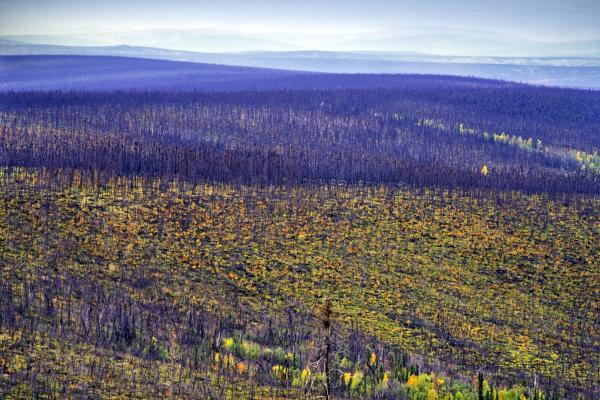Declines in plant resilience threaten carbon storage in the Arctic

Rapid warming has impacted the northern ecosystem so significantly that scientists are concerned the region’s vegetation is losing the ability to recover from climate shocks, suggests a new study.
Their findings revealed that due to frequent disturbances like wildfires that raze down vegetation and persistent drought and deforestation that starve both the land and wildlife, the resilience of many plant communities in southern boreal forests — or their ability to recover after these events — significantly decreased over time. This may affect the Arctic carbon budget, foreshadowing a future where the region is likely to become a carbon source instead of remaining a carbon sink due to its limited capacity to absorb atmospheric carbon dioxide in the coming decades.

This is because Arctic and boreal regions have warmed several times faster than other places around the globe and further warming is expected in the near future, said Yue Zhang, lead author of the study and a graduate student in earth sciences at The Ohio State University.
“When we talk about the response of forests to climate change, most of the time we’re thinking about the tropical rainforest,” said Zhang. “But remote boreal forests are really important in terms of their vast extent, large carbon storage,
and potential to mitigate climate change.”
The study was recently published in Nature Ecology & Evolution.
To better understand how the region’s ecosystem changed because of increased warming, researchers used historical data from NASA’s Arctic-Boreal Vulnerability Experiment (ABoVE) program to remotely sense subtle changes in greenness in Alaska and western Canada between 2000 and 2019. They were able to estimate the time-varying speed of vegetation recovery from small fluctuations or large losses, even in areas where large losses have not happened yet.
Read the entire article by visiting Ohio State News or read the study in Nature Ecology & Evolution.
